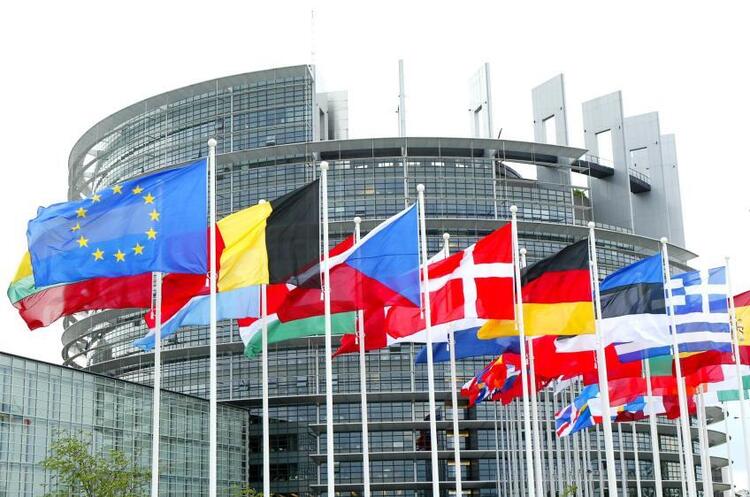The European Commission wants to extend the "transport visa-free regime" with Ukraine until 2025, but the document will be amended
Poland welcomed the procedure for reviewing the agreement on "transport visa-free travel" launched by the EC

The European Commission has put forward a proposal to extend the agreement on road transport with Ukraine and Moldova until at least the end of 2025. At the same time, a number of new clauses are being considered.
"At a time when traditional transport routes in the region are disrupted or closed due to Russia's aggressive war against Ukraine and the inaccessibility of the Black Sea as a traditional trade route for the two countries, extending the agreement at least until the end of 2025 will help ensure the security of supply chains," the European Commission said in a statement on its website on Tuesday, Interfax-Ukraine reports.
It is noted that, based on an exchange of views with member states, Ukraine and stakeholders, the Commission proposed to make changes to facilitate its implementation. At the same time, the scope of the agreement will remain the same.
In particular, it is proposed to make it mandatory to have documents confirming that the transport operator is duly authorised to carry out international transport and does so in accordance with the agreement.
In addition, a requirement is introduced for special documents for empty transport confirming that the operations it performs are related to transit or bilateral operations, as required by the agreement.
The proposals include a clause on compliance by road haulage operators with obligations related to operations permitted under the agreement, combating fraud or forgery of driving documents, and offences related to road safety. Such offences may lead to the revocation of the licence, the text on the EC website says.
The EC clarified that the proposals are currently before the Council, which is to give the Commission a mandate to negotiate with Ukraine and Moldova.
The transport visa-free agreement supports the EU-Ukraine Solidarity Roads, which were created as an alternative to the Black Sea shipping routes when Russia blocked Ukraine's ports. They allowed additional trucks to transport vital goods to Ukraine, including fuel and humanitarian aid. In addition, they helped Ukrainian goods, including grain, ore, and steel, to get to the EU and other countries, the statement said.
According to the European Commission, since the entry into force of the "transport visa-free regime" agreement, Ukrainian exports by road to the EU have increased by about two-thirds in terms of volume and about one-third in value. After the Agreement was signed, more than 300,000 tonnes of additional goods were exported to the EU every month. Ukraine's imports from the EU increased by a similar amount.
The Ministry of Infrastructure of Poland welcomed the procedure for reviewing the transport visa-free regime launched by the European Commission. The ministry stressed that the Commission's agreement to review the agreement is the result of intensive and multilateral efforts on the part of Poland, which has repeatedly signaled that the agreement negatively affects the Polish road transport industry.
The agreement on "transport visa-free travel" was signed in June 2022 and is valid until June 2024.
If you have read this article to the end, we hope that means it was useful for you.
We work to ensure that our journalistic and analytical work is of high quality, and we strive to perform it as competently as possible. This also requires financial independence. Support us for only UAH 196 per month.
Become a Mind subscriber for just USD 5 per month and support the development of independent business journalism!
You can unsubscribe at any time in your LIQPAY account or by sending us an email: [email protected]



